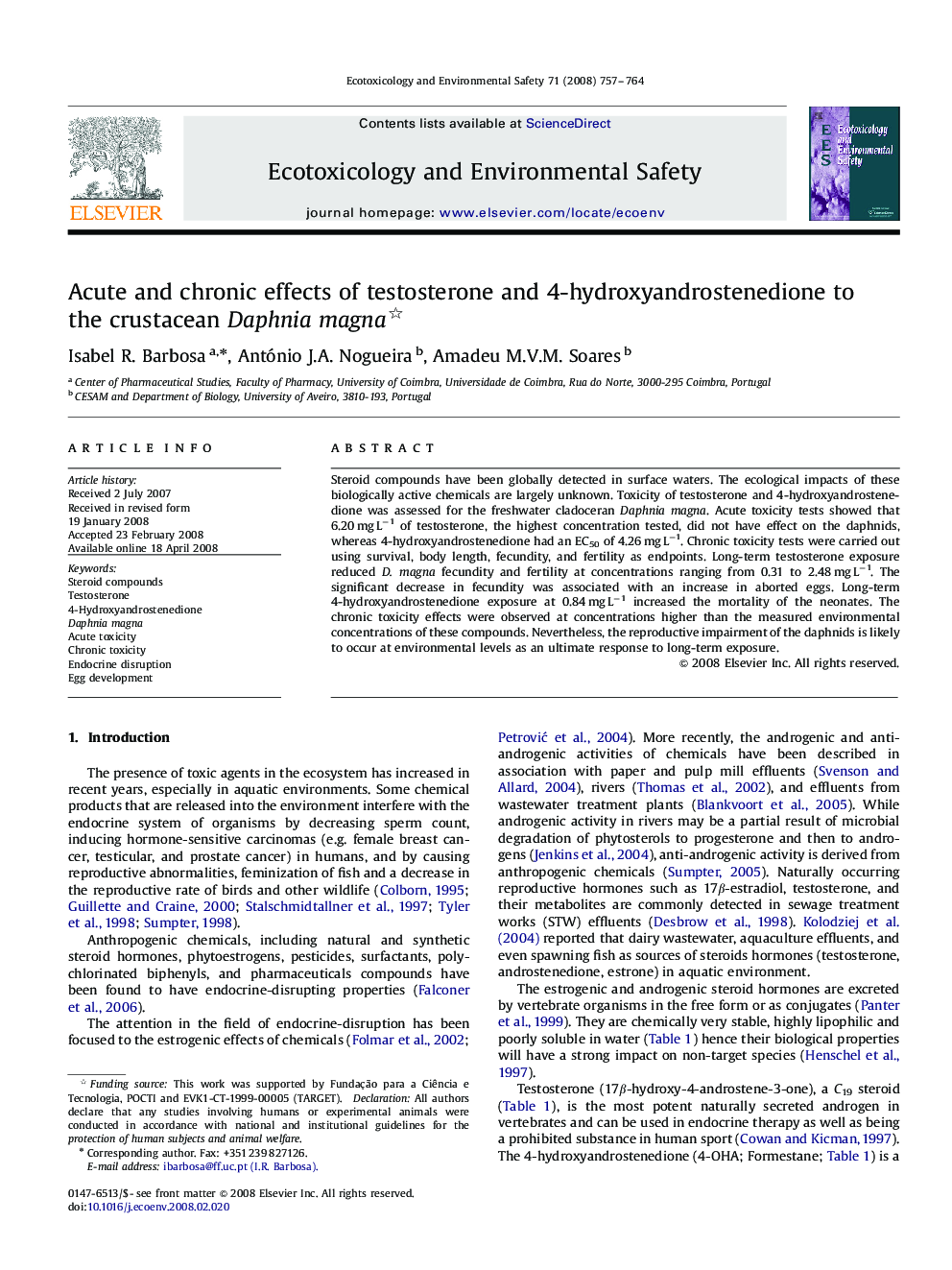| Article ID | Journal | Published Year | Pages | File Type |
|---|---|---|---|---|
| 4421812 | Ecotoxicology and Environmental Safety | 2008 | 8 Pages |
Steroid compounds have been globally detected in surface waters. The ecological impacts of these biologically active chemicals are largely unknown. Toxicity of testosterone and 4-hydroxyandrostenedione was assessed for the freshwater cladoceran Daphnia magna. Acute toxicity tests showed that 6.20 mg L−1 of testosterone, the highest concentration tested, did not have effect on the daphnids, whereas 4-hydroxyandrostenedione had an EC50 of 4.26 mg L−1. Chronic toxicity tests were carried out using survival, body length, fecundity, and fertility as endpoints. Long-term testosterone exposure reduced D. magna fecundity and fertility at concentrations ranging from 0.31 to 2.48 mg L−1. The significant decrease in fecundity was associated with an increase in aborted eggs. Long-term 4-hydroxyandrostenedione exposure at 0.84 mg L−1 increased the mortality of the neonates. The chronic toxicity effects were observed at concentrations higher than the measured environmental concentrations of these compounds. Nevertheless, the reproductive impairment of the daphnids is likely to occur at environmental levels as an ultimate response to long-term exposure.
